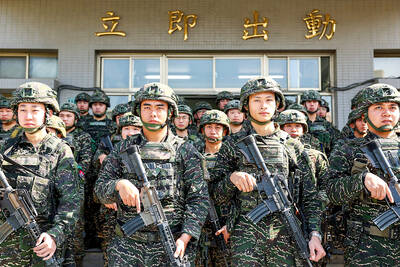An atmospheric and richly layered police procedural written and directed by Argentinian director Juan Jose Campanella is a welcome relief from Hollywood’s testosterone-driven take on this genre. The investigation is mixed with hints of an unrealized romance, finely drawn personalities, and a realization of the deep horrors that lie hidden within the human spirit. The Secret in Their Eyes won the 2010 Oscar for best foreign language film, beating out recently screened nominees The White Ribbon (Das Weisse Band) and A Prophet (Un Prophete).
The Secret in Their Eyes (El Secreto de Sus Ojos) starts out with former federal justice agent Benjamin Esposito (Ricardo Darin) revisiting a cold case that has haunted him for years. It is a little more than a whim, though he explains it as a way of filling out his retirement. In fact, it sucks him right back into events of 20 years ago.
The story mixes Esposito’s research for a book he wants to write about the case with flashbacks of the original investigation, and an important theme is that of memory, of how it insinuates itself into our minds, confusing us about the things we thought we knew. Amid the ambiguity of what might actually have happened, director Campanella keeps the story on message, quite a remarkable achievement with such complicated material. Campanella’s experience as a director on TV series such as Law and Order: Special Victims Unit and House M.D. shows in the film’s tight structure and slick execution, and he manages to pack a huge amount of material into just over two hours. This is crime drama at its best, with the focus firmly on how people think (what they say and how they act, and the disjunction between the two), rather than on crime, or for that matter, justice.
Esposito’s research brings him back into contact with Irene Menendez-Hastings (Soledad Villamil), now a district attorney, but then a newly hired department head trying to establish herself amid the fierce political in-fighting of a corrupt judiciary. In meeting with his former boss, Esposito finds that the spark that existed between him and Hastings has not been totally extinguished, but old barriers of social class and pay grade have been replaced by those of the taint from an investigation that has festered for too many years.
The story is enlivened by the character of Pablo Sandoval (Guillermo Francella), Esposito’s clerk, a wily philosopher about human ways and an incorrigible alcoholic. Sandoval, with his mixture of acute perceptiveness and bumbling incompetence, is one of the great police sidekicks of all time, and plays off wonderfully against Esposito’s more polished presence.
While memory plays plenty of tricks on Esposito as he tries to bring the threads of a decades-old case back together again, an unwillingness to forget ravages the soul of Ricardo Morales (Pablo Rago), whose wife was the victim of a savage rape and murder. For Morales, forgiveness is an act of betrayal, though the justice he seeks opens the door to a new kind of horror.
There is a strong subtext about coming to terms with past crimes, not least those of Argentina’s various unsavory political regimes, which are hinted at, but kept very much in the background.
The Secret in Their Eyes has mastered the difficult art of the slow burn, drawing the audience deeper into the emotions of the people characters, keeping them off balance, and never allowing them an easy sympathy with “the good guys.” Everyone, good and bad, has secrets hidden behind their eyes, if only you could
see them.

That US assistance was a model for Taiwan’s spectacular development success was early recognized by policymakers and analysts. In a report to the US Congress for the fiscal year 1962, former President John F. Kennedy noted Taiwan’s “rapid economic growth,” was “producing a substantial net gain in living.” Kennedy had a stake in Taiwan’s achievements and the US’ official development assistance (ODA) in general: In September 1961, his entreaty to make the 1960s a “decade of development,” and an accompanying proposal for dedicated legislation to this end, had been formalized by congressional passage of the Foreign Assistance Act. Two

Despite the intense sunshine, we were hardly breaking a sweat as we cruised along the flat, dedicated bike lane, well protected from the heat by a canopy of trees. The electric assist on the bikes likely made a difference, too. Far removed from the bustle and noise of the Taichung traffic, we admired the serene rural scenery, making our way over rivers, alongside rice paddies and through pear orchards. Our route for the day covered two bike paths that connect in Fengyuan District (豐原) and are best done together. The Hou-Feng Bike Path (后豐鐵馬道) runs southward from Houli District (后里) while the

March 31 to April 6 On May 13, 1950, National Taiwan University Hospital otolaryngologist Su You-peng (蘇友鵬) was summoned to the director’s office. He thought someone had complained about him practicing the violin at night, but when he entered the room, he knew something was terribly wrong. He saw several burly men who appeared to be government secret agents, and three other resident doctors: internist Hsu Chiang (許強), dermatologist Hu Pao-chen (胡寶珍) and ophthalmologist Hu Hsin-lin (胡鑫麟). They were handcuffed, herded onto two jeeps and taken to the Secrecy Bureau (保密局) for questioning. Su was still in his doctor’s robes at

President William Lai’s (賴清德) March 13 national security speech marked a turning point. He signaled that the government was finally getting serious about a whole-of-society approach to defending the nation. The presidential office summarized his speech succinctly: “President Lai introduced 17 major strategies to respond to five major national security and united front threats Taiwan now faces: China’s threat to national sovereignty, its threats from infiltration and espionage activities targeting Taiwan’s military, its threats aimed at obscuring the national identity of the people of Taiwan, its threats from united front infiltration into Taiwanese society through cross-strait exchanges, and its threats from